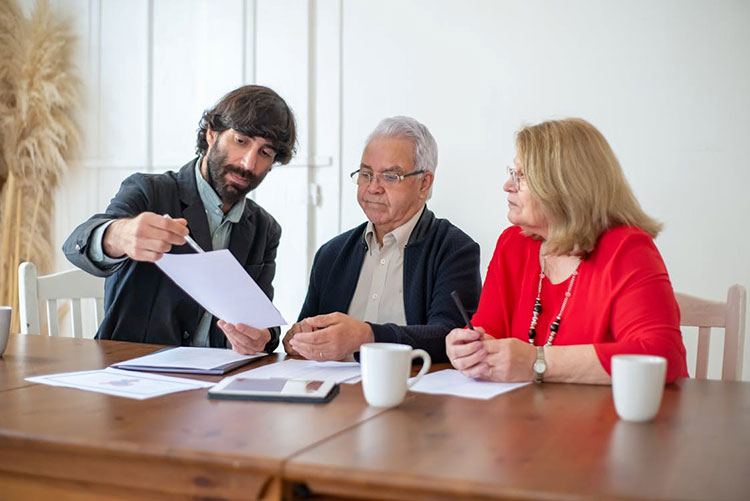
Magnuson Lowell Blog
Each week we post a blog about relevant legal issues. Glance through our various topics to learn more about a particular legal situation.
These articles are for limited informational purposes only and are not, nor are they intended to be, legal advice. You should not rely on this information for your case and should consult with an attorney for advice regarding your individual situation.
Most Recent Posts ...
Posted on: 3/31/2025
Posted on: 3/24/2025
Posted on: 3/17/2025
Posted on: 3/10/2025
Search All Blog Posts
Blog Post Archive Categories
- Reconciling After a Divorce Filing
- Dividing Retirement in Divorce - Do I Need a QDRO?
- Options for Dealing with Real Estate in Your Washington State Divorce
- Positive Thoughts After Losing a Family Law Motion
- Supervised Visitation for Washington Parenting Plans: What You Need to Know
- Filing for Immediate Restraining Orders in King County
- (Redmond/Criminal Defense) Time Matters for a DUI
- (Redmond/Criminal Defense) Field Sobriety Tests - What Not to Do
- (Redmond/Criminal Defense) - The (Redmond/Criminal Defense) - The Ability to Remain Silent
- Battling Father Time: Crafting Your Legacy with Precision
- Tips for Talking to Your Family About Your Estate Plan
- How to Choose Your Personal Representative for your Will
- What is a Trial Continuance in Washington State?
- Renewing a Domestic Violence Protection Order in Washington State
- Little Known Washington Driving Laws
- Divorce Mediation Tips for High-Conflict Couples
- Dealing with Small Business During a Divorce
- The Role of Financial Advisors in High-Asset Divorces
- Why Expediency is Important After Your Car Accident
- Understanding Independent Medical Examinations (IMEs) in Washington State
- It only takes 3 seconds...
- Gotta love our court system!
- (Redmond/Crazy Lawsuit) The Walking Dead: or Not!
- (Redmond/Crazy Lawsuit) Here Comes Football - and Litigation
- Honoring Our Heroes: A Thank You to All Who Have Served!
- Happy Halloween from Magnuson Lowell
- 10 Tips You Need To Know Before Getting On A Motorcycle
- Top 10 Tips You Need To Know Before Getting On A Motorcycle
- Top 10 Tips Riders Need To Know Before Getting On A Motorcycle
- In a Car Collision...Now What?
- Filing for Divorce: The divorce process begins with one spouse filing a petition for dissolution of marriage in the superior court – typically in the county where they or the other party currently reside. This petition outlines the grounds for divorce and any requests for relief, such as property division, child custody, and support.
- Service of Process: Once the petition is filed, the other spouse must be served with a copy of the petition and summons (and perhaps other documents). Service can be accomplished through personal service by a third party or, often, by email with an agreement signed by the party accepting service or their lawyer.
- Response to Petition: The served spouse has a limited time (typically 20 days but more in certain circumstances) to file a response to the petition. This response addresses the allegations in the petition and may include counterclaims or requests for relief.
- Exchange of Discovery: Both parties engage in discovery, which is the process of exchanging information and evidence relevant to the case. Discovery may include requests for documents, interrogatories, and depositions. In cooperative cases, this step might be informally completed saving both time and money.
- Filing Motions: During the discovery process, either party may file motions with the court to address specific issues or disputes that arise. Common motions include requests for temporary orders regarding child custody, support, parenting schedule, or the use of marital assets.
- Analysis of Evidence: As discovery progresses, both parties analyze the evidence gathered to support their respective positions on issues such as property division, spousal support, and child custody. This analysis helps shape negotiation strategies and trial preparation and can be completed with or without the help of appraisals and other experts.
- Negotiation and Mediation: Many divorces in Washington State are resolved through negotiation or mediation rather than going to trial. Parties may engage in informal negotiations or participate in formal mediation sessions with a neutral third party to reach agreements on issues such as property division and parenting plans.
- Trial Preparation: If negotiations fail to resolve all issues, the case will proceed to trial. Both parties engage in extensive trial preparation, including finalizing evidence, preparing witnesses, and drafting legal arguments to present to the court.
- Trial: During the trial, each party presents their case before a judge, who will make decisions on unresolved issues based on the evidence presented and applicable law. Witnesses may testify, and evidence may be introduced to support each party's position.
- Final Orders: After the trial concludes, the court issues final orders that detail the terms of the divorce, including division of property, spousal support, child custody, and child support. These orders are legally binding and enforceable.
Divorce Timelines in Washington State

Divorce proceedings can be complex and emotionally challenging, but understanding the general flow of the process in Washington State can help alleviate some of the uncertainty. From filing to trial, here's a very general (and not county specific) breakdown of the typical timeline for divorces in the state.
Navigating the divorce process in Washington State can be challenging, but with the guidance of experienced legal counsel, individuals can successfully navigate each stage of the process and work towards a resolution that protects their interests and those of their family. In Washington, the minimum divorce timeline is 90-days even if by agreement, and many trials won’t take place for at least 6 to 12 months after filing and service. If you have questions about the divorce process or need assistance with your case, don't hesitate to contact our firm for a free telephone case evaluation: 425-800-0576




